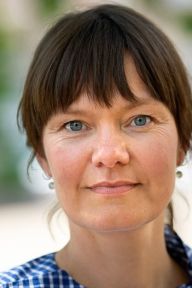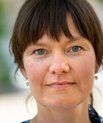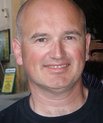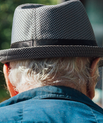New basic research to pave the way for better treatment of chronic pain
Professor Lene Vase and Assistant Professor Sigrid Juhl Lunde from the Department of Psychology and Behavioural Sciences at Aarhus BSS, Aarhus University, have received more than DKK 10 million for re-search into new methods of assessing the evidence of treatments with and without medication. Lene Vase and Sigrid Juhl Lunde have also published a new guideline on this very topic in The British Medical Journal.

![[Translate to English:] Sigrid Juhl Lunde Foto: Søren Astrup Jørgensen](/fileadmin/PSY/Om_os/Nyheder/Sigrid_Juhl_Lunde.jpg)
The Lundbeck Foundation has given a grant of DKK 5 million, Independent Research Fund Denmark has given DKK 3.17 million, and the Aarhus University Research Foundation has given a grant of DKK 2.4 million to Lene Vase and Sigrid Juhl Lunde. This enables the two researchers to conduct research into better control conditions for treatments with and without medication, which will benefit chronic pain patients in the form of better treatment.
"It's great that independent foundations are supporting basic research in how we best conduct evidence testing. It’s important that we as researchers continue to place high demands on the methods we use to ensure the most effective treatments for patients. It also shows that we as psychologists have a lot to offer in relation to large foundations like the Lundbeck Foundation. Grants like the ones we've received open up for great future perspectives," says Professor of Psychology Lene Vase about receiving the grants.
Does the medication work?
Lene Vase and her research group, PN Research Lab, have been researching the mechanisms behind placebo effects for several years. They have now reached the point in their research where this knowledge can be used to develop new designs to test the effects of treatments.
"When new pharmacological drugs are to be approved for treatment in clinical practice, they must be tested against placebos in what is known as a double-blind trial. This means that neither clinicians nor the patients know which treatment patients are receiving. However, the latest knowledge about placebo mechanisms questions whether these test designs actually give us knowledge about the real effects of the medication," explains Lene Vase and continues:
"For non-pharmacological treatments, such as neurostimulation, physiotherapy or psychological intervention, there are no requirements about which control conditions to use. This raises doubts about the extent to which it’s the effects of the actual treatment that are being measured."
New guideline for testing treatment
Lene Vase and her research group were recently involved in bringing together the world's leading researchers within placebo mechanisms and clinical trials to develop a guideline for performing and optimising clinical trials of non-drug treatments. The guideline has been published in The British Medical Journal.
The research group will now test insights from this guideline in their upcoming research projects.
The research is expected to contribute to better and more effective treatment of chronic pain patients. At the same time, practitioners and patients are expected to gain greater clarity about how large the positive effects of a treatment are in relation to possible side effects. This will enable them to better assess their options when choosing a course of treatment.
Further info:
- Read the scientific article about the new guideline CoPPS (Recommendations for the development, implementation, and reporting of control interventions in efficacy and mechanistic trials of physical, psychological, and self-management therapies): https://doi.org/10.1136/bmj-2022-072108
- Read more about Lene Vase and her research
- Read more about Sigrid Juhl Lunde and her research
- Read more about Lene Vase's research group PN Research Lab
- Read more about the projects and the grants below:
A scientific challenge in neuroscience: How to overcome large placebo responses in clinical trials?
Professor, MD, Lene Vase, Amount: DKK 4,998,295 from the Lundbeck Foundation
Does spinal cord stimulation (SCS) have an effect beyond patients’ expectations? An investigation of treatment and placebo effects
Professor, MD, Lene Vase, Amount: DKK 3,166,113 from Independent Research Fund Denmark
Re-thinking clinical trials: A new paradigm for testing the effect of treatments
Professor Lene Vase, Assistant Professor Sigrid Juhl Lunde, Amount: DKK 2,430,400 from Aarhus University Research Foundation
The randomised controlled trial (RCT) constitutes the existing paradigm for testing treatment effects. However, our research group has shown that one of the basic assumptions on which the RCT design is based may not be correct. With this project, we propose and test a new paradigm to ensure more precise estimates and better empirical evidence for the treatments we offer patients.







